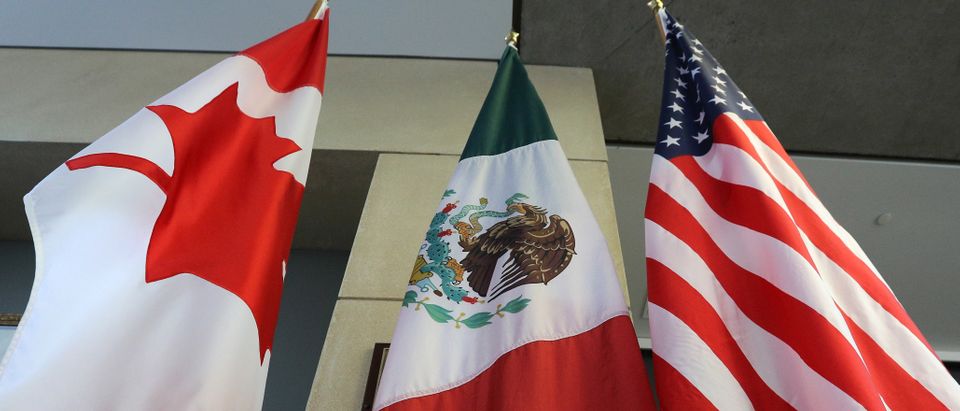President Trump recently announced the conclusion of a trade deal with Mexico that has the potential to derail his ongoing efforts to attract job-creating investment to the United States. Until the final text is made public, it is impossible to fully evaluate the deal’s overall impact. In the meantime, Americans should prepare to pay close attention to the details of the deal’s labor and environmental rules.
Earlier this year, President Trump told world leaders, “Now is the perfect time to bring your business, your jobs, and your investments to the United States of America. This is especially true because we have undertaken the most extensive regulatory reduction EVER CONCEIVED.”
Unfortunately, the new trade deal appears to move in the opposite direction by potentially curbing the ability of parties to cut regulations to attract investment. It looks like the United States may have just cut and pasted the very worst parts of the Trans-Pacific Partnership into the new trade deal with Mexico.
For example, according to the U.S. Trade Representative (USTR), the new agreement includes a labor regulation chapter that “brings labor obligations into the core of the agreement, makes them fully enforceable, and represents the strongest provisions of any trade agreement.”
This includes a commitment not to “derogate” from existing labor laws. Based on USTR negotiating objectives, this is likely to mean that the United States and Mexico agree not to lessen or reduce labor laws in order to attract foreign investment.
Other USTR objectives included promoting freedom of association, eliminating “discrimination in respect of employment,” and requiring countries to impose minimum wage laws that could have the unintended effect of encouraging companies to replace low-wage workers with machines.
These provisions appear to be primarily designed to win support from Democrats. According to one administration official, “There has never been a trade agreement remotely as good on labor from the point of view of organized labor and Democrats, for whom that is a high priority, than this one. These are the most forward-leaning labor provisions ever agreed to, and they can be completely enforceable.”
Another negotiating objective laid out by USTR was to require that countries not “derogate” from their existing environmental laws to encourage investment. The new agreement’s chapter on environmental regulation ‘brings all environmental provisions into the core of agreement and makes them enforceable.”
It is not in America’s interest to give Mexico — and possibly Canada — the ability to challenge everything from state bathroom access laws to reductions in Environmental Protection Agency (EPA) regulations.
If President Trump wants to cut certain regulations to attract foreign investment to the United States? That’s a possible trade violation. If Pennsylvania passes a right-to-work law? Possible trade violation. A business changes its transgender employment policies? Possible trade violation. And unlike now, these actions would be — in the words of USTR — “fully enforceable.”
Concerns about trade deals being hijacked by union and environmental groups to impose new costs on the U.S. and foreign economies have been around for decades. As American Enterprise Institute scholar Claude Barfield observed, “Using trade agreements to dictate increased wages and stricter labor regulations has been a goal of congressional Democrats since the 1990s.”
When the North American Free Trade Agreement (NAFTA) was being debated in 1993, Arizona Republican Rep. Jim Kolbe warned:
We should keep in mind that the NAFTA is first and foremost a trade agreement. It is not a labor or environmental pact. The administration must understand that if it goes too far in courting labor and environmental groups, it runs the risk of transforming the NAFTA into an unrecognizable package that no longer attracts its key congressional supporters. But the issue is more than just a political argument of holding on to votes in Congress. A fundamental issue of national policy is at stake in these negotiations. They must be concluded so as not to threaten U.S. sovereignty or undermine the trade benefits of the NAFTA.
Until the new trade deal’s text is made public, these concerns are all just hypothetical. But once it is available to review, Americans should make sure that in bending over backward to court Democrats, USTR didn’t negotiate a “fully enforceable” labor and environmental deal that would give foreign governments the ability to object to U.S. pro-growth economic policies.
Bryan Riley is the Director of the Free Trade Initiative at the National Taxpayers Union, a nonprofit dedicated to advocating for the best interests of American taxpayers at all levels of government.
The views and opinions expressed in this commentary are those of the author and do not reflect the official position of The Daily Caller.


